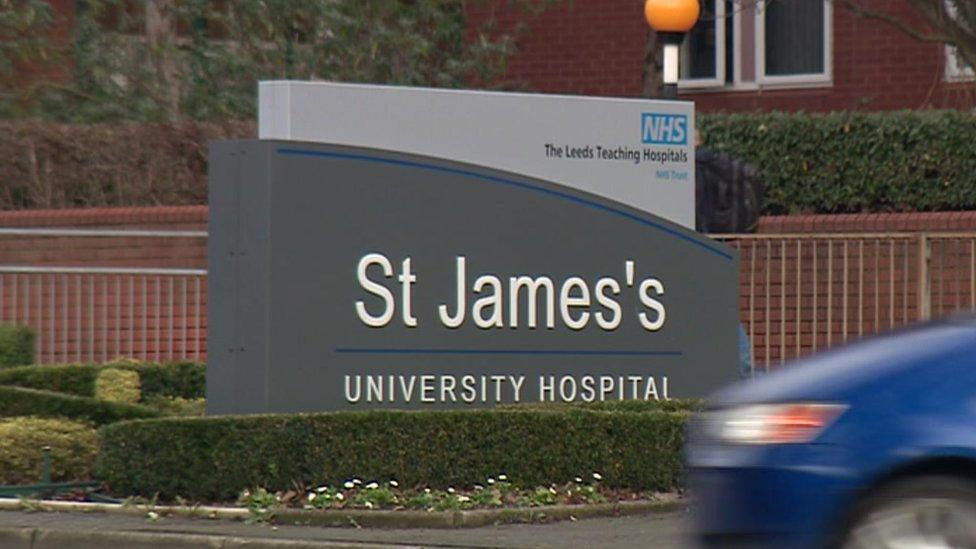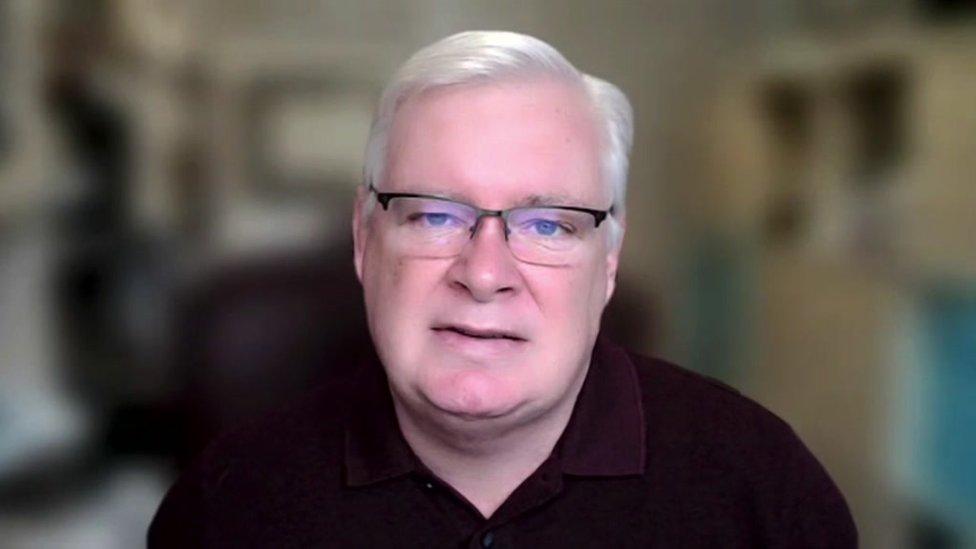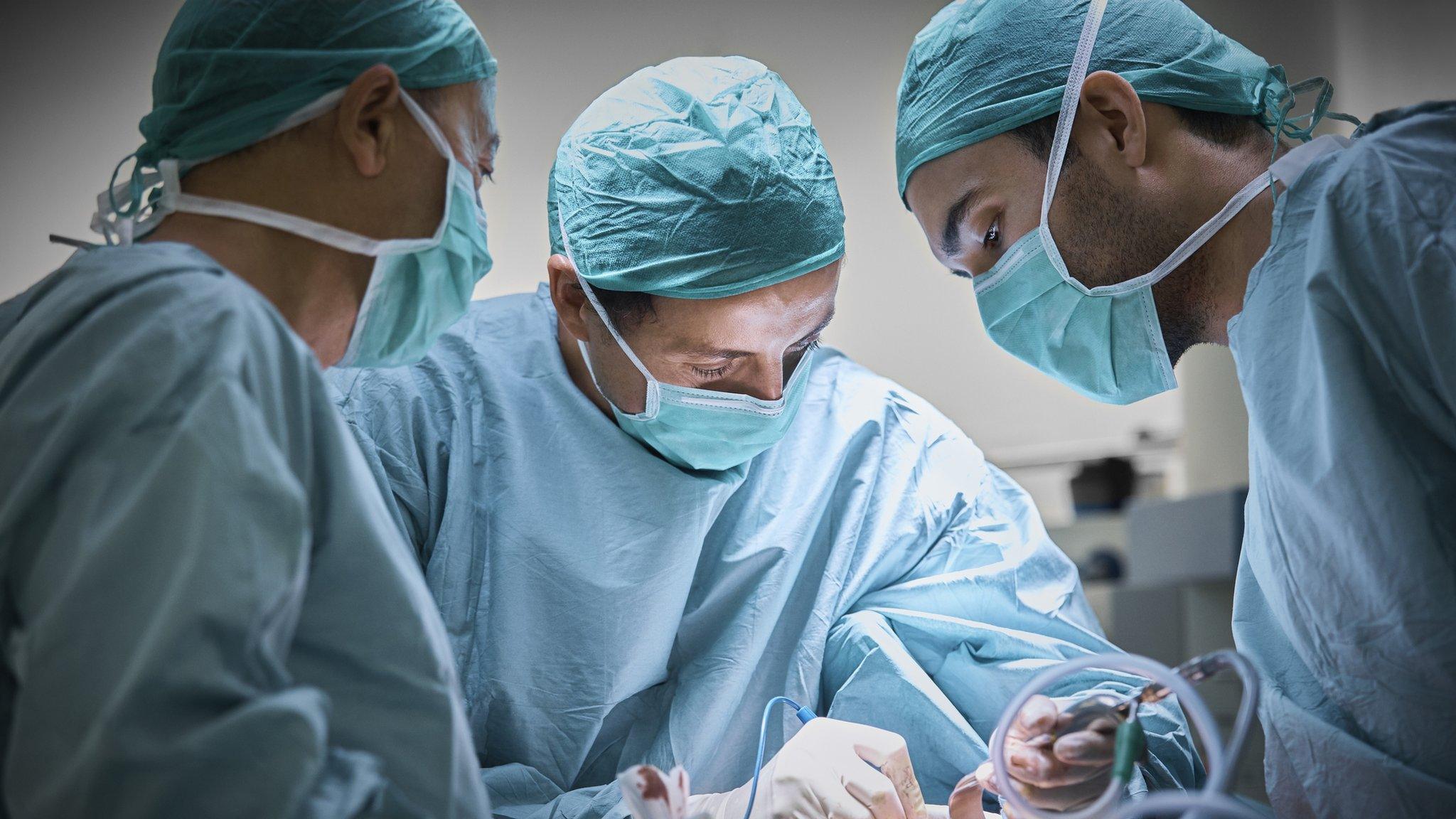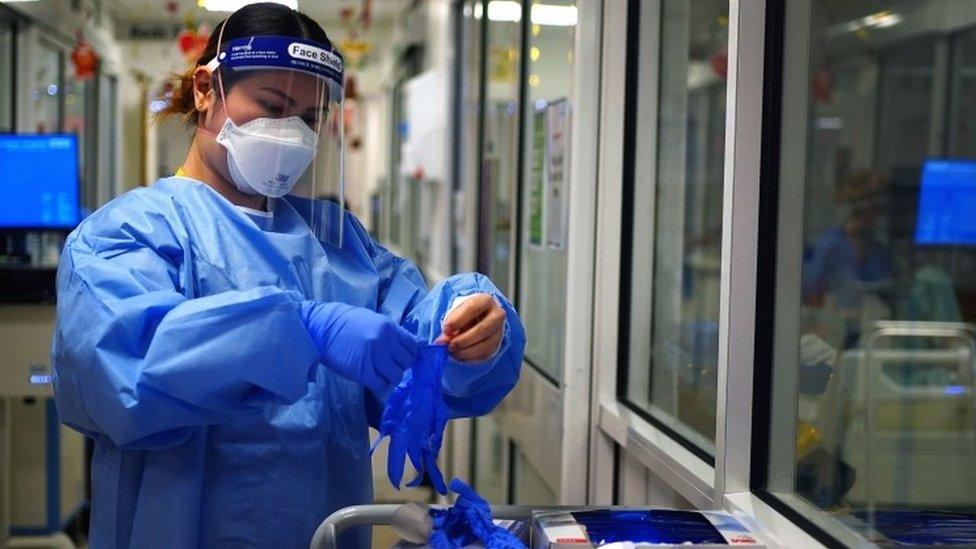Covid: Leeds Nightingale hub could delay other work, says doctor
- Published

The temporary Nightingale unit in Leeds is planned to house about 100 patients
Patients awaiting routine procedures could face delays as a Nightingale "surge hub" swallows up staff, a medical union has warned.
The temporary unit at St James's University Hospital in Leeds is one of eight being set up across the UK.
Dr Brian McGregor, of the British Medical Association (BMA), said staffing more beds would mean "falling further behind" on routine work.
The health secretary has said he hopes the new hubs will not have to be used.
Dr McGregor, from the BMA's Yorkshire Regional Council, said: "Each bed takes two to three staff to run it 24/7.
"The workforce that can work is working and how we cover staffing of these units is going to be the most important part, because you're going to be taking staff away from other pathways and other workload.
"So we're going to find ourselves falling further behind on our routine work."
Health Secretary Sajid Javid said last week that the hubs were a last resort but it was right to prepare for all scenarios.
Construction materials for the Leeds unit are expected to be delivered later.
As well as the eight surge hubs there are also plans to identify sites for a further 4,000 beds if needed.

Dr McGregor, is from the BMA Yorkshire Regional Council
The hubs were described as a "back up insurance policy" by Chris Hopson, chief executive of NHS Providers - the membership organisation for NHS trusts in England.
An email seen by the BBC from Leeds Teaching Hospitals NHS Trust to its staff said the hubs could be "activated in extremis".
Critical incidents have been declared at six hospital trusts nationwide, including one in Lincolnshire, amid rising staff shortages due to Covid-19.
Meanwhile, a further 157,758 lab-confirmed Covid-19 cases were recorded in England and Scotland on Monday, the government said.
The Omicron variant is driving huge numbers of infections - but fewer people with coronavirus are ending up in hospital than a year ago.

Follow BBC Yorkshire on Facebook, external, Twitter, external and Instagram, external. Send your story ideas to yorkslincs.news@bbc.co.uk, external.
Related topics
- Published4 January 2022

- Published30 December 2021
